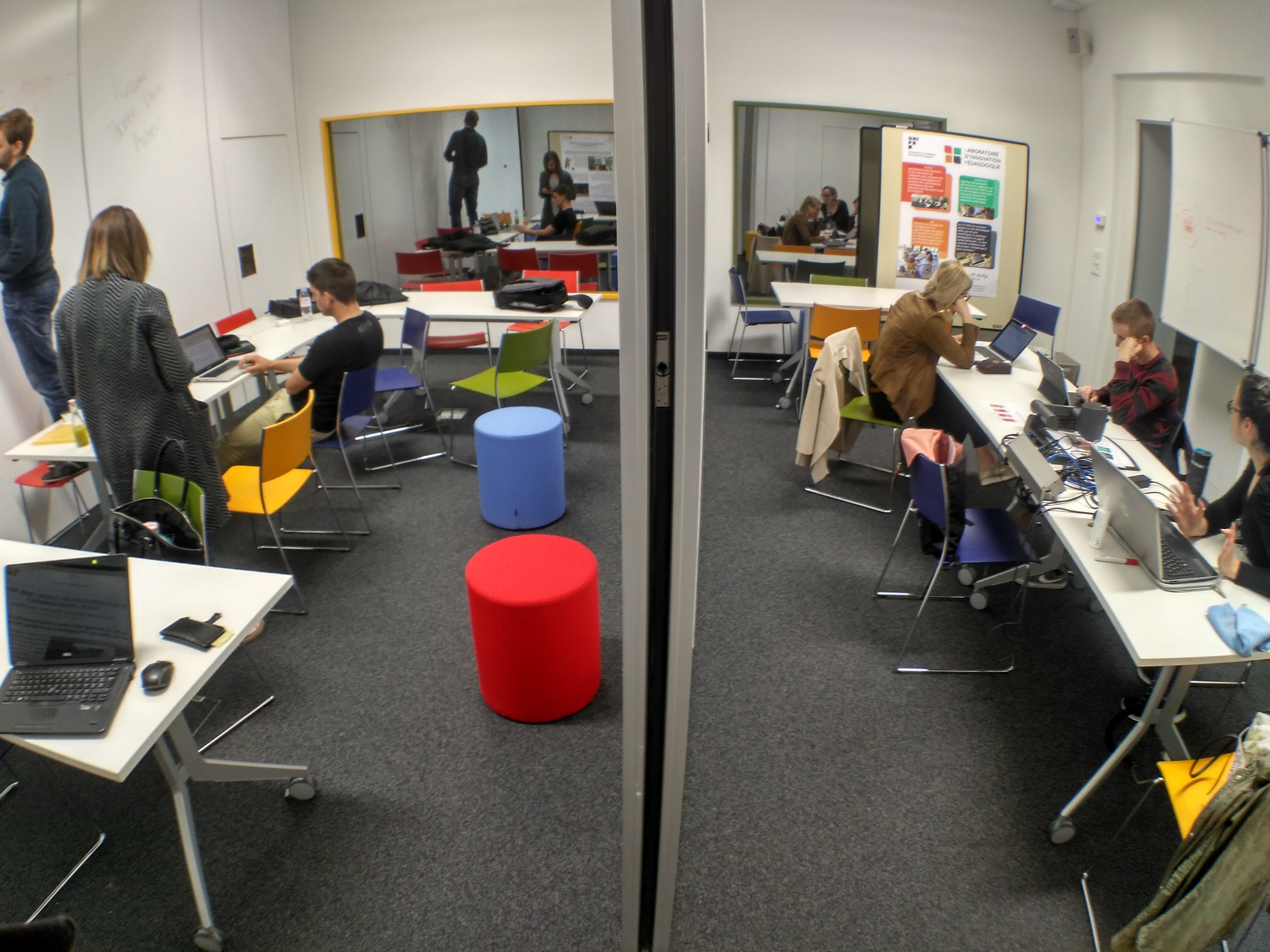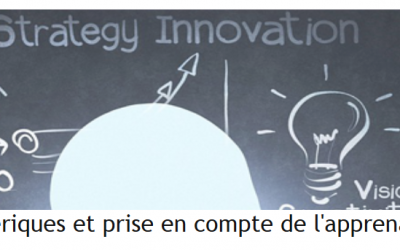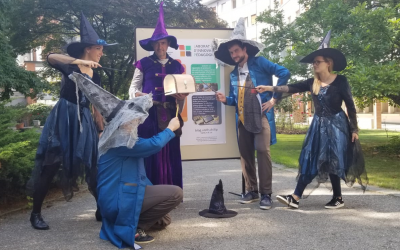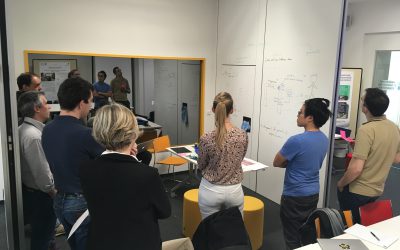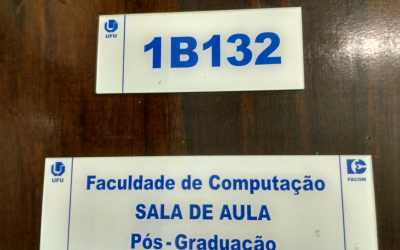co.LAB – A Digital Lab for the co-Design, co-Development and co-Evaluation of Digital Learning Games
Interest in Digital Learning Games (DLGs) has flourished at all levels of education. Digital Learning Games contribute to increasing students’ motivation and engagement, and are effective tools to support learner centered teaching practices. However, the design, development and uses of DLGs remain an issue due to the gap between teachers, game developers and researchers.
At the crossroads between educational and computer sciences the goal of the co.LAB project is to improve the design, development and uses of Digital Learning Games at all educational levels in Switzerland. This goal will be achieved by the development of what we call the co.LAB: a collaborative methodological framework between teachers, game developers and researchers in educational science, associated with a collaborative digital platform dedicated to co-design, co-development and co-evaluation of DLGs.
With the development, implementation and assessment of the co.LAB methodology and digital platform, we want to answer the following research questions (RQ).
RQ1: What methodology is needed to support collaborative DLG design and development?
RQ 2: What are the digital platform features necessary to support the collaborative DLG design and development process?
RQ 3: What are the effects of the methodology and digital platform on development cost and duration (efficiency)?
RQ 4: What are the effects of the methodology and digital platform on the quality of DLGs produced (relevance and effectiveness)?
RQ 5: What are the drivers for adoption of the methodology and digital platform by the educational, game developer, and research communities?
Following a design-based and mixed methodology, the co.LAB methodology and digital platform will be implemented and tested with the design, development and evaluation in real educational contexts of two showcase games dedicated to medical education (higher education) and computational thinking (secondary education). They will be used as a proof of concept. The experimentations will be carried out with classes both in a secondary school and at a university of applied sciences. The data collected will be based on an ethnographic approach on the one hand (questionnaires and focus groups carried out with stakeholders), and on the digital traces of users of the platform on the other hand.
By including a digital infrastructure for digital learning resources development and by providing, as a use test result, two digital learning games the project is fully in line with the PNR77 goals and more specifically with the module “Education, learning and digital change”. In addition, the co.LAB methodology, digital infrastructure and laboratory may serve both as an example of the introduction of digital in education and as a basis for future co-development of open digital educational resources in general.
Durée du projet
01/2020 – 12/2023
Financement
Fonds National Suisse

Requérants principaux
Dominique Jaccard HEIG-VD et Eric Sanchez, Université de Fribourg
Partenariat
Haute Ecole d’Ingénierie et de Gestion du Canton de Vaud
Membres du projet
Estelle Prior Unige
Mariem Jaouadi Unige
Membres associés
Nadine Mandran LIG/U. Grenoble
Matthieu Vermeulen IMT Nord Europe
Emmanuel Beffara U. Grenoble
Gaëlle Guigon IMT Nord Europe
Jérémie Humeau IMT Nord Europe
Anthony Fleury IMT Nord Europe
Contact
Eric Sanchez (eric.sanchez@unifr.ch)
Dernières actualités relatives à cette recherche
EIAH’2019
Avec la co-présidence de la conférence et l'organisation d'un atelier sur la pensée informatique, le LIP est fortement impliqué dans la conférence Environnements Informatiques pour l'Apprentissage Humain (EIAH'2019) qui se tiendra à Paris du 4 au 7 juin 2019. La...
Médias numériques : former plutôt qu’interdire
Interview pour Universitas "Les médias numériques inquiètent les milieux scolaires, parce que leur utilisation peut mener à des abus et que le traitement des données privées par leurs fournisseurs n’est pas rassurant. Faut-il tout rejeter en bloc? Le professeur de...
Péroll’ard, un jeu dédié à la découverte de l’Université de Fribourg
Conçu par le Laboratoire d’Innovation Pédagogique en partenariat avec la HEIG-VD, le service de communication et la bibliothèque de l’Université de Fribourg, le jeu Péroll’ard est le résultat du travail de Simon Morard dans le cadre de son stage de Master. Le...
Inauguration du nouveau Centre Fritic
Le LIP était présent lors de l’inauguration des locaux du nouveau Centre Fritic. Fritic est « le centre de compétences responsable de tous les aspects en lien avec les médias et technologies de l'information et de la communication (MITIC) dans le domaine de...
Publications et communications des membres du LIP
[AJ] : articles dans des revues avec comité de lecture [CL] : chapitre de livre [AC] : actes de conférences avec comité de lecture [CI] : conférence invitée [CO] : communication orale [P] : poster 2018 [CO] Sanchez, E., Gonçalves, C. (2018). Agradar e instruir ... ...
PACT- Playing & Computational Thinking
Empowering young people with computational thinking skills has been recognized as crucial to helping them understand the physical and social worlds they inhabit. On the one hand, in Switzerland, different initiatives have been taken to address this issue in secondary...
Recherche orientée par la conception : vers la constitution d’un réseau international
Du 17 au 20 décembre 2018, le LIP organise un séminaire international sur les recherches collaboratives en éducation. Ce séminaire de 4 jours s’inscrit dans un contexte où se développent les méthodologies de recherche collaboratives en sciences de l’éducation. Cela...
Conception d'un jeu pour la journée Explora de l'Unifr
Le LIP est impliqué dans le projet Explora, la journée portes ouvertes de l’Université de Fribourg. La mission qui lui a été confiée porte sur le développement d'un jeu numérique qui permettra d’accompagner et d’enrichir l'expérience des futurs visiteurs. Après une...
Présentation de jeux en réalité mixte, réalité augmentée et réalité virtuelle à Uberlandia
Le déplacement du LIP à Uberlandia a été l’occasion d’organiser une rencontre avec la faculté des sciences informatiques de l’Université fédérale d’Uberlandia. Au cours de cette rencontre, Adilmar Coelho, doctorant en informatique encadré par Marcelo Zanchetta et...
Epistémologie des Méthodes mixtes
Comme pour les éditions précédentes, le Laboratoire d'innovation pédagogique sera partie prenante de la sixième édition du séminaire du CERF qui aura lieu le vendredi 8 juin 2018 de 9h00 à 12h15. Le séminaire sera consacré à l’épistémologie des méthodes mixtes. 09h10...

